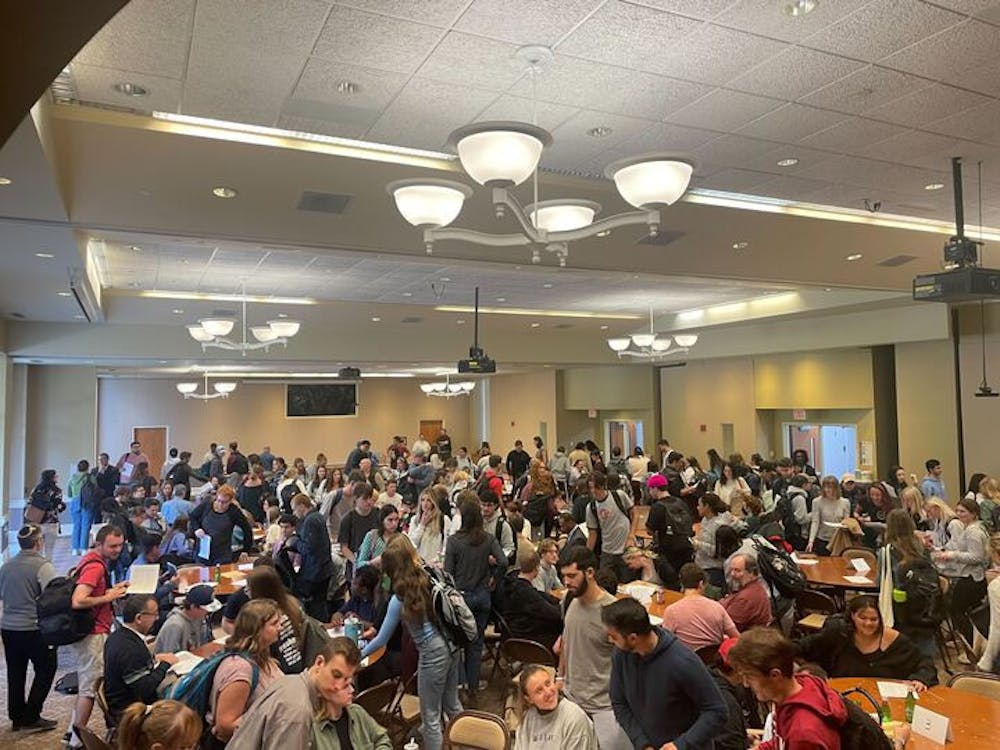CORRECTION: A previous version of this article incorrectly stated that a university event will be held Nov. 7 to continue discussion of the Israel-Hamas conflict. The event will actually be a lecture about Israel's national identity. Elon News Network regrets this error.
Elon University hosted Contextualizing the Conflict: Conversations About the Middle East — a collection of roundtable discussions about the Israel-Hamas conflict — on Oct. 18.
The event, organized by the Center for the Study of Religion, Culture and Society, the International and Global Studies Program and the Department of Political Science and Policy Studies allowed students to hear from other students and faculty experts.
In response to the conflict, Elon President Connie Book said it is vital for the Elon community to participate in civic discussion.
"We all share the responsibility of peaceful and civil engagement, debate and discourse in our conversations and communications," Book said.
On Oct. 7, Hamas, a Palestinian militant group, attacked the southern border of Israel.
According to the Gaza Health Ministry, 3,785 Palestinians have been killed and 12,493 have been wounded as of Oct. 19.
The United Nations estimates that more than 1,300 Israelis have been killed since Oct. 7.
More than twenty Elon University faculty members gathered on Oct. 18 to hold an open discussion on the events unfolding in the Middle East.
The event was facilitated by Elon faculty members Carrie Eaves, Jason Husser, Andrea Sinn and Brian Pennington.
Faculty members who participated in this conversation spoke from their own area of expertise, offering a range of perspectives from history and religious studies to political science and international studies.
Attendees participated in a roundtable discussion – each one led by a faculty member who gave a short lecture and presentation about the conflict from their particular field of study.
Freshman Ashley Warsetsky said she attended this event in hopes of better understanding the Israel-Hamas conflict.
"I don't really understand everything that's happening," Warsetsky said. "It all just seems like a lot to take in."
Warsetsky also said that while she doesn't have family living in Israel, she feels sympathetic for those who do.
"Even though I'm Jewish, I don't have anyone close to me affected by the war, but I really do feel upset for the families that have been deeply hit," Warsetsky said.
At the event, Elon staff stated their intentions to keep students updated and educated about the Israel-Hamas war by hosting conversations and offering supportive resources to students in need.
Ariela Marcus-Sells, Elon professor of religious studies, said she intends to keep the conflict in her students' minds by encouraging them to take advantage of educational and support opportunities offered by the university.
"It's very important that Elon continues to inform students, faculty, staff of their counseling and mental health services and of the resources through the Truitt Center for Religious and Spiritual Life," Marcus-Sells said.
An academic dialogue about Israel's national identity will be held by Shay Rabineau, professor of Israel Studies at Binghamton University, on Nov. 7.


